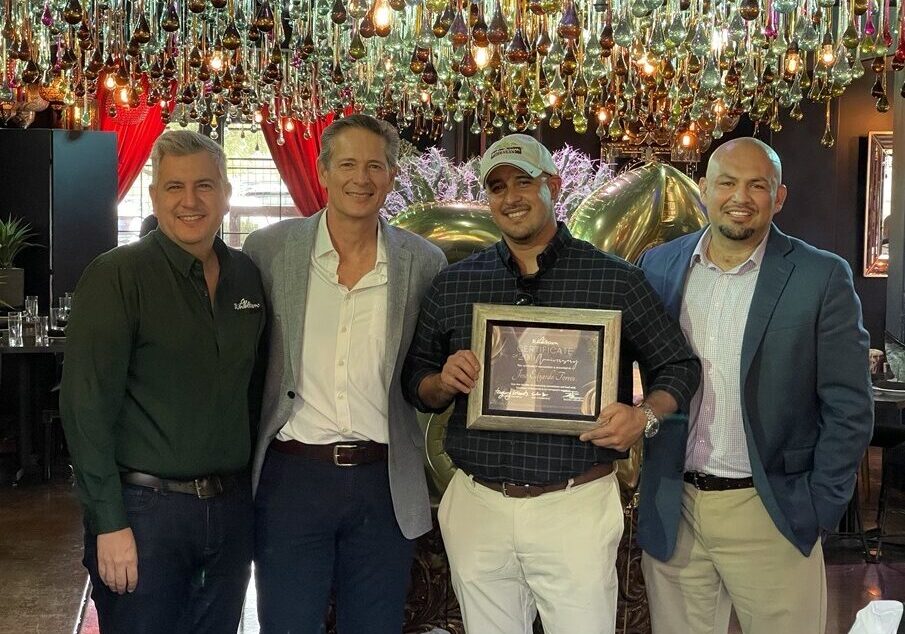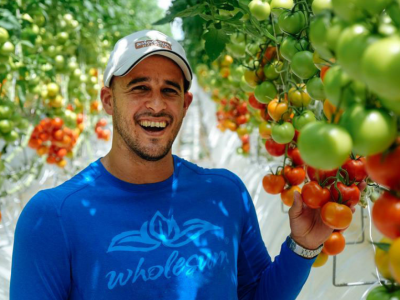Meet Edgar Torres, Head Grower of Wholesum Farms Arizona and tomato connoisseur!
As Head Grower, Edgar oversees all production-related operations within the company’s 24 acre organic tomato greenhouses. This is the site that grows Wholesum’s beautiful organic tomatoes on the vine, heirloom, cocktail and beefsteak tomatoes (or as he refers to them, his works of art).
Late last month, we celebrated Edgar’s 20th anniversary at Wholesum, a true milestone moment! Edgar’s dedication to Wholesum has been constant and exemplary. Today, we’re putting him in the spotlight with a quick Q & A session.
What is your background and training?
I studied Horticultural Engineering at El Zamorano University in Honduras but my background in agriculture goes back much further. As the son of a melon grower, I’ve been close to plants since I was very little and always had a connection to agriculture. I knew that this is what I wanted to pursue. Years later, my growth within the organics field was inspired by Dr. Elaine Ingham’s Soil Food Web. I find it very fascinating and love being able to take concepts from her teachings, such as feeding plants with the help of microorganisms and using byproducts in nature for nutrients. These are very revolutionary concepts.
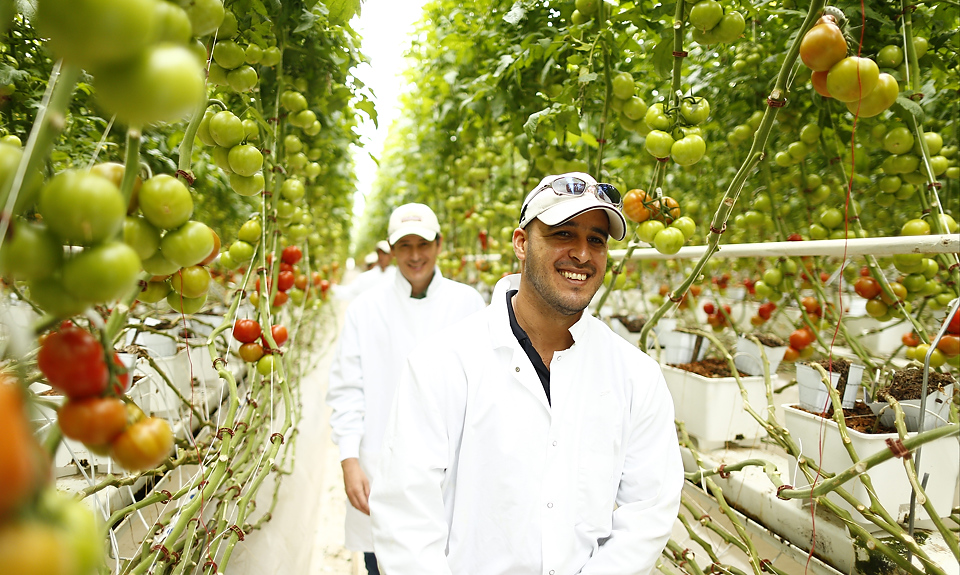
Tell us a little bit about your Wholesum story. When did you start and how did that role evolve over your 20 years with the company?
I started at Wholesum as Assistant Grower in one of the company’s tomato greenhouses in Imuris, Sonora in 2003. We started planting on a Sunday, on August 31st to be exact! In 2006, I was promoted to Greenhouse Grower for 18.5 acres of mostly tomatoes but also cucumbers and peppers. During this time, I also worked on developing our inhouse propagation and research processes.
In 2012, I transferred to Wholesum Farms Arizona, the newest location, which was still being constructed. It would become a 12 acre facility dedicated to 100% organic production. It was a challenge and blessing to have been involved with bringing up this production site since its beginning. Much of the technology was very new and we were all learning together. I was named Head Grower of the farm. Since then, my team and the farm has grown a lot. I now oversee 24 acres of mixed greenhouse varieties including organic tomatoes on the vine, cocktail, beefsteak and heirloom tomatoes.
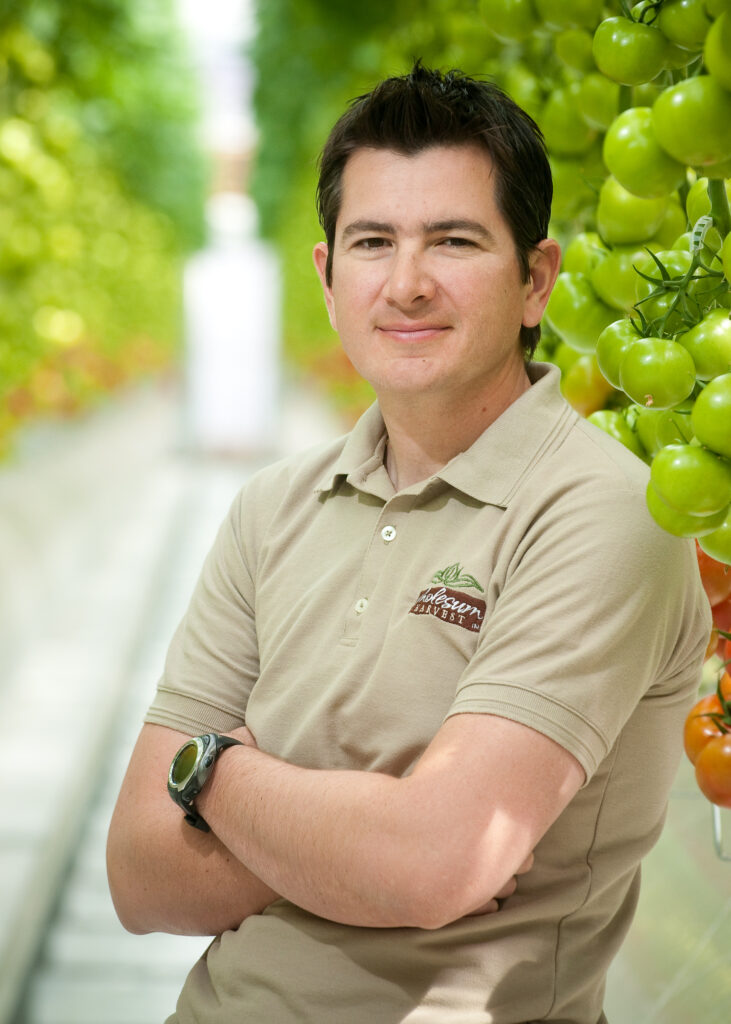
In this whole journey, one of my greatest mentors was Adrian Crisantes (1976 – 2014, the youngest of the Crisantes brothers). He was able to inspire through his passion and leadership. I will always respect his legacy as one of the greatest growers I have ever worked with and I can only do my best to continue moving his vision forward for the family business.
What is your farming philosophy?
I see farming as a journey in lifelong learning. New challenges come up all the time – climate change, pests, weather, inflation etc. Every year brings a new battle plus those that are always there. We need to be in tune with our connection to nature, constantly observing to be proactive and find solutions for the problems before they become even larger problems. Observations, together with measurement are key to initiating transformations in the problem solving process.
This is the mentality I bring to my team and how I train them. Reaction time is critical in this business and continuous training of the team plays a role in our success. We need to create high level leaders who are on that journey of lifelong learning and embrace our value of problem solving.
What are some of your most memorable projects in your time at Wholesum?
I feel proud about starting our inhouse propagation in 2005 when I was working in the Sonora location. These were the first grafted plants that we produced in house. We now supply 100% of the tomato plants at Wholesum Farms Arizona internally from our own farms and can ensure the highest quality crop.
Another memorable time was when we started the operation in Arizona. I was involved in this project from the beginning and it has been amazing seeing it grow into what it is today.
I also want to mention rugose, a word that makes any tomato grower uneasy because of how damaging the virus can be. But I can proudly say that we were able to be proactive about this virus when it began spreading widely in 2020. It took us reinventing many of our processes and learning sanitation procedures from other industries to avert risks.
What are some of the biggest changes you have encountered during your years in farming/the ag industry?
I have experienced many changes throughout my time here. Labor availability is one that is very notable. We need to be very intentional about how we compete with other growing industries in the area. Being Fair Trade Certified is one of the steps we have taken to demonstrate our commitment to our workforce and provides a competitive edge. We also have to look into our processes to find areas where we can be more efficient. Training, retention and incentives help with this.
We also have to manage costs with surgery precision. In my early days, we used to have fun trying new ideas and practices without thinking too much about the cost. It was 100% out of a passion for growing. And while we’re just as passionate now, we’re more disciplined and intentional in how we approach new ideas.
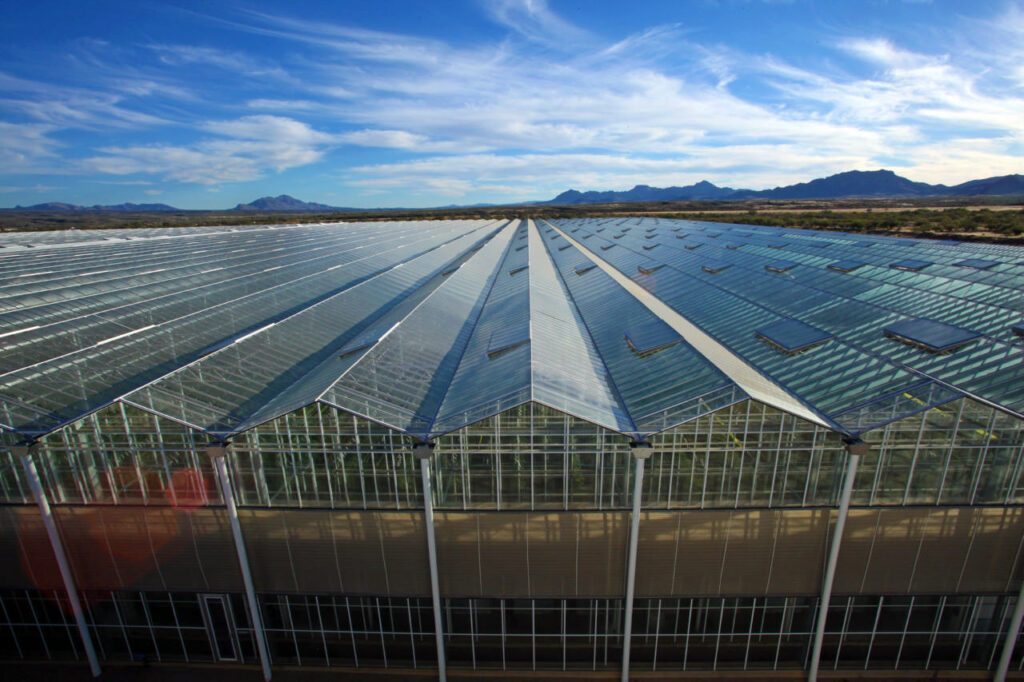
What are your thoughts on new farming technologies? Are there any you are excited to implement in your growing operations?
I’m excited about exploring robotics. It opens up new options for us and higher level opportunities for growing our people through engineering and supervisor positions within the company. It has the potential to bring more efficiency and consistency to our operations. This can positively impact cost structures, which for me is one of the more challenging areas to manage. We need to learn how to grow more food with fewer resources so we can achieve our purpose to nourish a healthy world.
As a tomato connoisseur, which is your favorite tomato? and why?
All tomatoes we grow are excellent, but if I have to choose one, I would have to go with cherry tomatoes on the vine. When you harvest them, and the color is at its perfect point, it is such a unique experience! I can snack on them all day but I also use them for cooking. Believe it or not, they are great for soups and marinara sauce. The flavor balance is exceptional!
For the people who grow tomatoes at home, what advice would you give them?
The first house-growing mistake I see is people not giving their tomato plants enough water. Either that, or there is not enough water retention from the substrate to hold water for the day. It is best to irrigate in the morning. And as far as using the correct substrate goes, I recommend planting in rich soil and a 2-inch layer of mulch to increase water retention.
My next recommendation is to cover them to protect them from pests during the first 6 to 7 weeks before harvest. Pests can damage the crop quickly. You can cover them with insect netting.
The last piece of advice is to give them enough light. Avoid shade in the winter and use 50% shade in the summer. Tomatoes love sunlight.
Can you share a quick fun fact?
The only bad part about being a grower is that when it’s cloudy you feel extra sad because your crops are not making enough carbohydrates and are using their reserves to survive.
~~~
On August 31st, we celebrated Edgar’s milestone anniversary, recognizing his 20 years of dedication and recounting memories!
